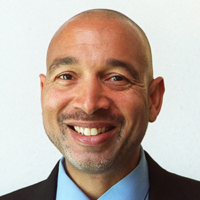If any set of Republicans cracks the party’s wall of denial on climate change, it will be those most responsible to deal with its ravages—mayors. That was reaffirmed during Hurricane Irma when Miami’s Republican mayor, Tomas Regalado, told the Miami Herald:
“This is the time to talk about climate change. This is the time that the president and the EPA and whoever makes decisions needs to talk about climate change. If this isn’t climate change, I don’t know what is. This is a truly, truly poster child for what is to come.”
Irma offered Regalado a crescendo for a message he and other Republican mayors in Florida have repeatedly sent to party leaders. During the 2016 Republican presidential primaries, he and fellow Republican James Cason, who this year retired as mayor of Coral Gables, penned an op-ed in the Miami Herald challenging Republican candidates to understand that the rising seas of climate change will make South Florida “unrecognizable.”
Describing themselves as “staunch” Republicans who otherwise are suspicious of federal regulations, Regalado and Cason wrote that “we shouldn’t waste time” debating the science. Rather, they said it was time to debate how to respond.
“We can debate ways to develop clean energy, how to put a price on carbon and how to protect coastline communities from flooding and storms,” they wrote. “We can debate ways to grow the economy and create new jobs while protecting lives and property from climate change.”
In an interview last year with National Public Radio, Cason said climate change affects everything from low-lying schools and hospitals to the owners of $5 million homes who “see their property values go down because they can no longer get a boat out. When they start flooding, whenever that is, when do they stop paying taxes?”
Republican mayors do not have the luxury to fly at the 30,000-foot level of denial as Florida Governor Rick Scott is accused of banning “climate change” from official state communications, as Environmental Protection Agency Administrator Scott Pruitt claims it is “insensitive” to connect climate change to Hurricane Irma, and as Arizona Senator John McCain made news by being a lonely Republican calling merely for “common-sense measures” on climate change.
Rather, Republican mayors say they fret along with their coastal Democratic counterparts about chronic high-tide inundation and the rising intensity and restoration costs of storms.
In Coral Gables, the new mayor, Republican Raul Valdes-Fauli, is a former tax attorney for oil companies. During his campaign, he said climate change “is not just a feel-good issue, it is a very vital issue for Coral Gables.”
In Palm Beach County, Steve Abrams, a Republican who was mayor and is currently a commissioner, last year told the British Guardian newspaper, “We don’t have the luxury at the local level to engage in these lofty policy debates. I have been in knee-deep water in many parts of my district during King Tide.”
In other parts of the nation far from hurricane zones, other Republican mayors have begun to speak out. Carmel, Indiana Mayor James Brainard vociferously opposed President Trump’s pullout of the Paris climate agreements. In June, he told National Public Radio that the Midwest is “at risk for all sorts of bad things,” particularly “the frequency and intensity of storms” and “the evolution of new pests in the fields outside our metro areas.”
Brainard said his city is taking many steps to fight climate change, by making the city more walkable, switching street lights to LEDs, adding parkland, and ordering all fleet vehicles to be either hybrids or use alternative fuel. He said that on a one-on-one basis at least, he stops critics of green investment in their tracks with the city’s dramatically lower electricity costs.
He told NPR that by ignoring the economic benefits of going green, the Trump administration has “missed a political opportunity to expand their base. They’re speaking to a very small portion of the Republican base, and it’s a big missed opportunity for them.”
And in America’s largest city to be governed by a Republican mayor, San Diego’s Kevin Faulconer continues to set the pace for many of his Democratic big-city counterparts with his city’s plan for all-renewable energy by 2035. Despite some local criticism that his administration is not working fast enough on bike lines, tree canopies, and giving communities more say in where their electricity comes from, Faulconer remains a standard bearer for Republicans who see that wildfires and rising seas are tied to fossil fuels. Last month, he told the prestigious Commonwealth Club in San Francisco:
“It’s time for today’s California Republicans to stop ignoring climate change. If we opt out of the conversation, we’re only going to get extreme one-party solutions. We should be proud to offer our own plans to preserve our environment—plans that don’t plunder the middle class.”
The Republican Party may not yet be proud of the likes of Faulconer and Regalado. But based on the battering over the last decade and a half of the East Coast and Gulf Coast by hurricanes, the blistering heat of the West, the increasing intensity of storms in the Midwest, and the northward spread of crop pests and diseases spread by mosquitoes and ticks, the party does not have long to opt in to the conversation.

